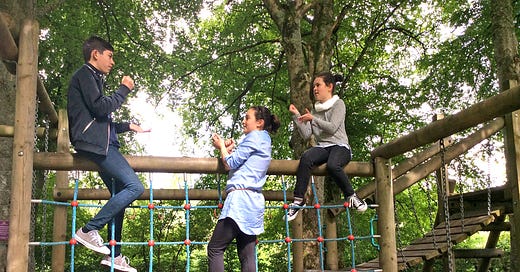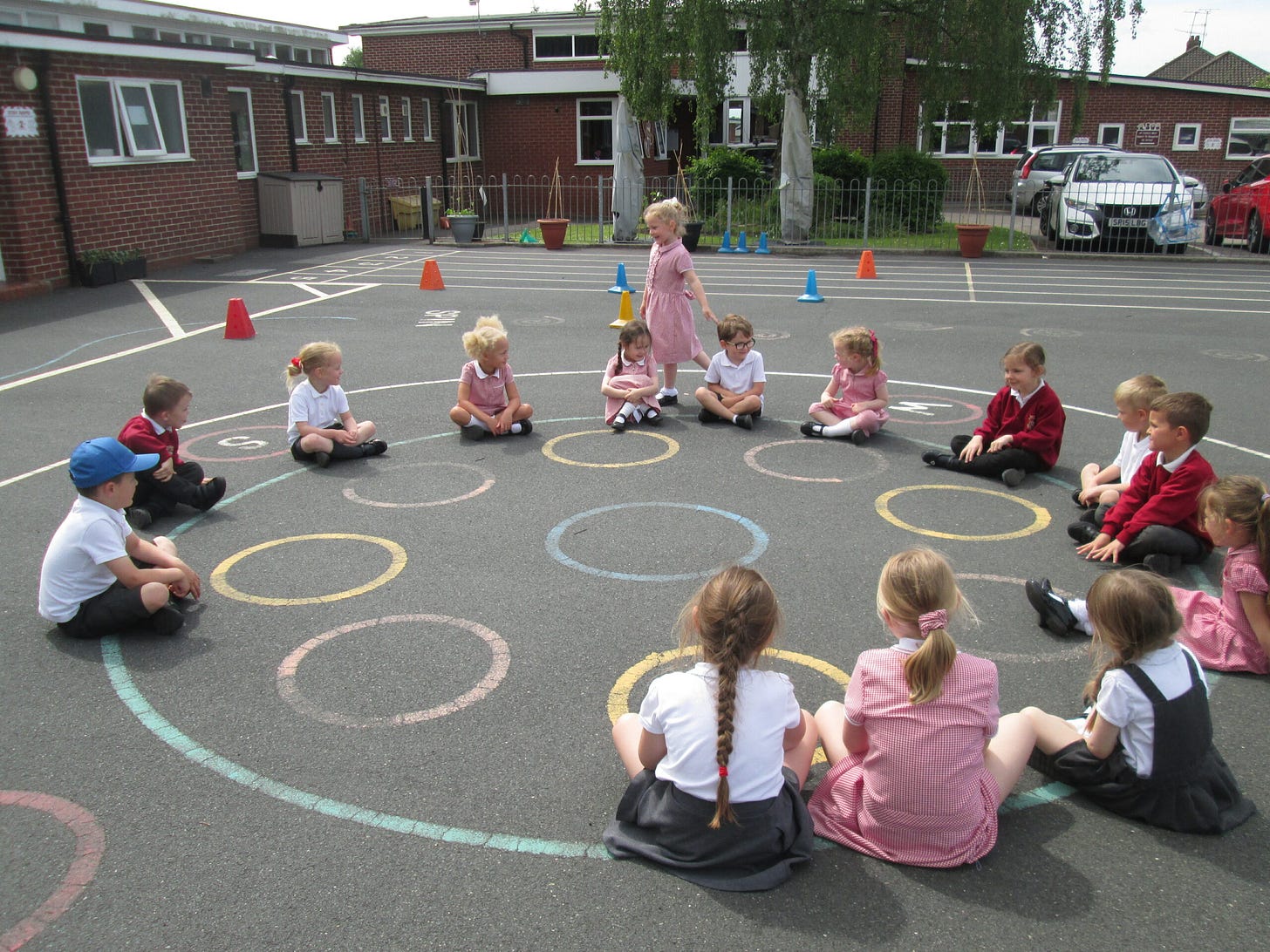Author’s note: The charismatic, concerned and anxious Scottish writer of children's stories known as 'the Thumble, Tumble ' series, Angela Proctor, along with a small film company {clubhouse animation studio StrangeWorx} are attempting to raise funds for the homeless charity Shelter, through showing a six-minute film which deals with a homeless man and his dog confronting Jack Frost during Christmas. The film, based on a poem by the author, is titled 'Arthur's Christmas Tale.' The STV film will be shown until April 2025.
This wonderful film aims to inspire stronger public aid towards assisting the estimated 10,200 homeless children in Scotland—a number which is rapidly rising. StreetSense examined some of the issues which are being raised concerning homelessness in Scotland.
.
.
"As an author I have visited hundreds of schools across Scotland, and I can see how austerity is affecting children. The worst affected are our most vulnerable children, those without a permanent home, having to deal with the uncertainty, worry and anxiety of constantly moving 'home' causes,” the author stated.
“I have seen first hand the impact this has on children who are trapped in the housing crisis cycle, moving from one temporary abode to another. It impacts on their development and mental health, potentially reducing their future prospects—which is why we need to put an end to homelessness in all its forms,” stated the author of children's stories Angela Proctor, best known for writing stories about magic in a series of tales known as 'The Thumble, Tumble.'
But Angela does not just write books. She is also an advocate on a mission to encourage children to 'read again and again' and to revitalise libraries which are being closed down all around the United Kingdom. Reading books is one alluring and attractive way of empowering young children. Angela Proctor has visited countless schools in Scotland where she has read her works and become very aware of the predicament of poor and homeless children.
The plight of homeless children is just staggering. At times, it is almost beyond belief. According to official data published by the Scottish government in March 2024, 10,110 children were living in temporary accommodation such as staying at hotels and bed and breakfasts. And it remorselessly rises every month. It now currently stands at over 10,200.
This represents a rise of around 5% since March 2023 when there were 9,595 homeless children.
The statistics can't tell the harrowing suffering inflicted on children. Those children can be stigmatized by other children and at times punished by teachers for breaking all kinds of rules which are simply impossible to observe. For instance, living in cramped and overcrowded rooms can mean you have no peace to study. Go to the local library? It could be either closed down or very far from you. As one 15-year-old homeless school student cited by Shelter, the homeless charity, said, “If you have a brother or sister running about and you 've not got anywhere to go, then you can't concentrate. Everyone's making a noise.”
And one child explained, “I wasn't getting any money and the only person working was my gran. But then she stopped working. Before I left school, I didn't even have a pencil to my name. I said to the school, ‘Sorry, I'm not in school uniform but I've grown out of my uniform.’ Just a school tie was 12 pounds and you had to wear one. That was another reason why I left school: I couldn't afford it. It's not even a private school. It's meant to be free!”
Many poor and homeless children come to school very hungry, tired, and in no ideal condition to study. Many can fall asleep during lessons or have this blank gaze. Some school teachers discreetly feed the children and local councils have passed measures to insist that children obtain free school meals.
In some of the worst cases, primary school teachers have learnt that some children were sleeping on the floor. They had no bed. They could not sleep well because they were being bitten by insects. A pupil showed his shocked teacher how badly he had been bitten.
That is often the harsh reality of living in temporary accommodation--which is often unfit. Children are exposed to damp conditions where they are exposed to being bitten by both the cold and insects. In fact, recent medical research indicates old Victorian diseases which were once thought eradicated are returning to 21st Century Britain.
There have been reported cases of scabies, scurvy and rickets! In England, Doctor Farzane Hussain encountered cases of scabies {a parasitic skin infection transmitted by mites that burrow and lay eggs under the skin. It tends to thrive in overcrowded slums and squalor.} Dr Hussain stated - " By the time a patient comes to me for advice everyone in the family has it, including all the children. The itch is maddening. People demand immediate treatment."
According to the Royal College of General Practitioners, scabies cases are now around three per 100,000 of the population in England. And in 2022, 423 patients in England were admitted with rickets. This is a disease due to lack of sunlight and lack of vitamin D. And in 2022, 188 people were treated for scurvy which is a condition caused by not eating enough fresh fruits and vegetables—leading to a lack of Vitamin C.
It could be said that the United Kingdom is now experiencing a “new dark ages.”
The causes of those revived diseases has been made clear by Sir Michael Marmot, the Director of the Institute of Health Equity at University College London. He stated the surge in infectious diseases mirrors the cost of living crisis, decades of cuts in social and medical services and soaring poverty. Poverty and disease are closely correlated. So homeless children have it tough in so many ways!
Shelter has warned that “A generation of children in Scotland are being stripped of their right to grow up in a secure, safe home, and are unable to achieve their full potential. This is unacceptable. We are increasingly seeing children and their parents stuck in hotel rooms for months—having to share a bed with their parents and siblings or forced to sleep on a sofa and unable to eat proper meals because there are no cooking facilties. They are often almost living on top of each other, with little or no choice.”
The author Angela Proctor agrees it's just unacceptable. She hopes her film 'Arthur's Christmas Story' will encourage more awareness and support which undermines the stigma which homeless children suffer from. One of things that the homeless children on the streets suffer from is the freezing cold. One homeless girl called Nicola recalls, “I was homeless for a year moving between the streets, my gran's and friends couches.” She spent 3 months on the streets. Nicola remembers, "I can't describe it. I didn't have my stuff with me, just that one outfit. I was freezing, so numb, I couldn't feel any part of my body.”
The film teaches clear lessons, indeed.
We can learn from this scene in the film: A dog on the street melts Jack Frost's heart by giving him his only precious possession which is his bone. Jack Frost then understands that he can no longer be indifferent or cruel to the homeless by making them cold. Angela Proctor states, "I hope my film will give them some hope and comfort and go some way towards lifting the stigma they face.”
The good news is that there are more and more people from different backgrounds in Scotland volunteering to aid the homeless in any way they can. For instance, many schools, libraries, local councils, and charities are attempting to offer real help for the homeless.
Angela Proctor states, “It is unbelievable that in this day and age, Scotland has over 10,000 children living with that experience {homelessness} every single day.” It's beyond belief, indeed !
.
.
References:
Marion Scott's article in the “Scottish Sunday Post,” titled 'Author's film to help 10,000 homeless Scots kids who deal with stigma daily,' October 13, 2024;
The journal “Inside Housing,” News Report 25,09 24; and
Conversations with staff members of—and recent reports by those staff members of—the homeless charity ‘Scottish Shelter’ concerning information they gleaned when they interviewed homeless Scottish children.





